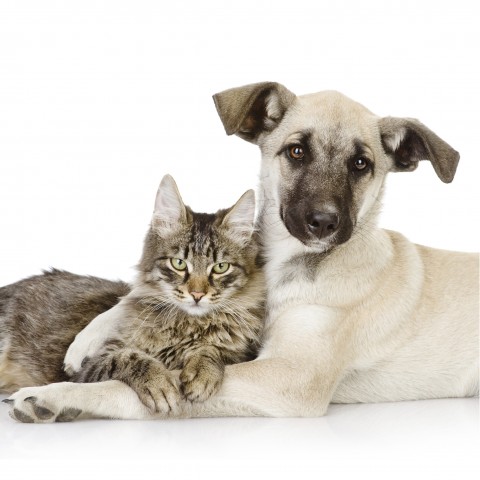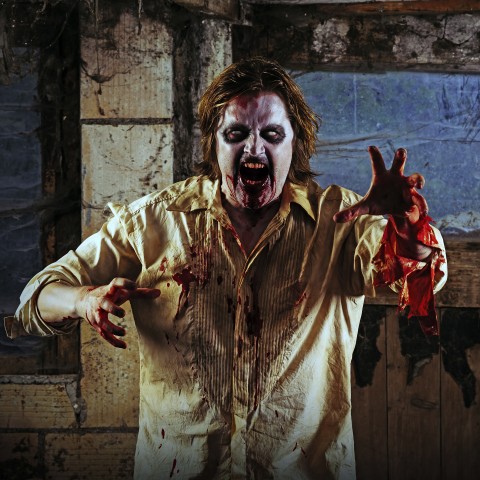What’s the Difference Between Neuf and Nouveau?
Epoxydude/fStop/Getty Images
English speakers sometimes find it difficult to translate «new» into French, due to confusion over the French words nouveau and neuf. In fact, the French adjectives have distinctly different meanings; the problem is actually caused by the fact that the English «new» has more than one meaning. Fortunately, this is an easy problem to remedy. Read over this lesson, learn the difference between nouveau and neuf, and you won’t have any more trouble saying new in French.
Nouveau
Nouveau means new in the sense of new to the owner — a change or improvement; that is, something that is new because it’s different than what came before, regardless of whether it is brand new from the store. The opposite of nouveau is ancien (former).
As-tu vu ma nouvelle voiture ?
Have you seen my new car?
(The car is not necessarily new out of the factory; new here means new to the speaker.)
Il a mis une nouvelle chemise.
He put a new shirt on.
(He took off the shirt he was wearing and put a different one on in its place. The «new» shirt may or may not be new from the store; the important thing here is that it is different.)
C’est nouveau.
It’s new.
(I just bought/found/made it.)
Nous avons un nouvel appartement.
We have a new apartment.
(We just moved.)
J’ai vu le nouveau pont.
I saw the new bridge.
(The replacement for the one that got washed out.)
Nouveau precedes the noun it modifies and changes to agree in gender and number with it.
nouveau — nouvelle — nouveaux — nouvelles
Nouveau has a special form for masculine nouns that begin with a vowel: nouvel.
Note that une nouvelle is a piece of news and les nouvelles refer to the news in general.
Neuf
Neuf means new in the sense of brand new, fresh out of the factory, first of its kind. The opposite of neuf is vieux (old).
Je n’ai jamais acheté une voiture neuve.
I’ve never bought a new car.
(I always buy used cars.)
Il a acheté une chemise neuve.
He bought a new shirt.
(He went to the store and bought a brand-new shirt.)
Comme neuf.
As good as new.
(It’s fixed, so now it’s just like new.)
Nous avons un appartement neuf.
We have a new apartment.
(We live in a brand-new building.)
J’ai vu le Pont neuf.
I saw the Pont neuf (in Paris).
(Although this is the oldest bridge in Paris, at the time it was built and named, it was a brand-new bridge in a brand-new spot.)
Neuf follows the noun it modifies and changes to agree in gender and number with it:
neuf — neuve — neufs — neuves
Remember that neuf is also the number nine:
J’ai neuf cousins — I have nine cousins.
Nouveau vs Neuf
In summary, nouveau means something has changed, while neuf indicates that something is newly-made. With this new knowledge, you shouldn’t have any more trouble deciding whether to use neuf or nouveau.
In Frenc, to express that something is new, you can use two different adjectives: «neuf» or «nouveau».
Using «neuf» or «nouveau» in French
Look at these examples:
Léo a reçu un vélo tout neuf pour son anniversaire.Leo received a brand new bike for his birthday.
J’ai acheté un nouveau vélo.I bought a new bike.
C’est une voiture d’occasion ?
— Non, elle est neuve.Is it a second-hand car?
— No, it’s new.
Emilie a trouvé sa nouvelle table au marché aux puces.Emilie found her new table at the flea market.
Notice that there is a nuance in French between neuf/neuve and nouveau/nouvelle.
While both mean ‘new’, neuf implies that it’s never been used before, brand new (Note that it cannot apply to living things, e.g. pets), whereas nouveau just means ‘new’ in a more general sense.
In some context, obviously, both are correct.
However, the main difference of usage is the position in the sentence:
— neuf is placed AFTER the noun
— nouveau is placed BEFORE the noun
See also Beau, nouveau, vieux, fou, mou have two masculine forms and one feminine form (French Adjectives)
Want to make sure your French sounds confident?
We’ll map your knowledge and give you free lessons to focus on your
gaps and mistakes. Start your Braimap today »
Wiki User
∙ 13y ago
Best Answer
Copy
nouveau
Wiki User
∙ 13y ago
This answer is:
Study guides
Add your answer:
Earn +
20
pts
Q: What is french word for new?
Write your answer…
Submit
Still have questions?
Related questions
People also asked

By
Last updated:
March 10, 2023
Learning vocabulary is one of the cornerstones of learning French.
By knowing the most common vocabulary, you’ll get better at everyday communication—which gets you closer to interacting with some of the 300 million people who speak French around the world.
In this post, we’ll get you started with more than 250 easy and common French words!
You’ll be well on your way to having a solid base in the French language in no time.
Contents
- Most Common French Words
- Important French Verbs
- French Question Words
- French Household Words
- French Words for Food & Drinks
- French Words for School or Work
- French Words for Making Descriptions
- French Words for Animals & Nature
Download:
This blog post is available as a convenient and portable PDF that you
can take anywhere.
Click here to get a copy. (Download)
Most Common French Words
Let’s start with some essential vocabulary that you’ll end up using a lot in French conversations:
- Bonjour ! — Hello / Good morning!
- Bonsoir ! — Good evening!
- Oui — Yes
- Non — No
- Excusez-moi — Excuse me
- Je suis désolé / Je suis désolée — I’m sorry (with an extra e if you’re female)
- S’il vous plaît — Please
- Merci — Thank you
- À bientôt — See you soon
- Bonne soirée — Good night (when saying goodbye)
- Bonne nuit — Good night (when you’re about to sleep)
- Au revoir — Goodbye
Important French Verbs
Aside from the conversational words and phrases above, you’ve also got to know the absolute most common French verbs:
- Être — to be
- Avoir — to have
- Aller — to go
These verbs are irregular, meaning they don’t follow the same rules of usage (or conjugation) that so-called regular verbs do.
Most French verbs are regular, meaning you only have to learn the endings of their group.
In French, there are three groups of so-called regular verbs, denoted by their infinitive (unconjugated) endings: -er verbs, -ir verbs and -re verbs.
Here are the most common verbs in each group:
-Er Verbs
- Parler — to speak
- Aimer — to like
- Chanter — to sing
- Danser — to dance
- Fermer — to close
- Demander — to ask
- Étudier — to study
- Regarder — to watch
- Visiter — to visit (a place)
- Habiter — to live
- Jouer — to play
- Laver — to wash
- Penser — to think
- Utiliser — to use
- Trouver — to find
- Manger — to eat
-Ir Verbs
- Finir — to finish
- Bâtir — to build
- Choisir — to choose
- Remplir — to fill
- Grandir — to grow
- Grossir — to gain weight
- Obéir — to obey
- Punir — to punish
- Réfléchir — to reflect
- Réussir — to succeed / pass (a test)
-Re Verbs
- Vendre — to sell
- Attendre — to wait
- Détendre — to relax
- Entendre — to hear
- Fondre — to melt
- Descendre — to go down / descend
- Pendre — to hang
- Perdre — to lose
- Prétendre — to claim
- Répondre — to respond
With all these different kinds of verbs, it’s handy to have a verb conjugation tool, like the one from Reverso.
Another option is to study these verbs in action with FluentU, which features authentic French videos with interactive subtitles. Click on any French verb or other word used in the video to see its definition, along with grammar notes and examples.
You can then add new words to flashcards and take personalized quizzes to grow your French vocabulary.
The language learning program is also available on iOS and Android, so you can take your French study with you wherever you go.
French Question Words
Looking for directions? Do you want to know the price of something?
Whatever you do on your trip to France, you’re definitely going to need to ask for help or direction at some point.
Here are some common expressions to help you get around:
- Où ? — Where?
- Qui ? — Who?
- Quoi ? — What?
- Quand ? — When?
- Comment ? — How?
- Pourquoi ? — Why?
- Combien ? — How much? / How many?
Of course, the beauty of learning language is to be able to communicate with native speakers, which means people might also ask you questions!
Key phrases:
- Comment vous appelez-vous ? — What’s your name?
- Je m’appelle… — I’m called…
- Quel âge avez-vous ? — How old are you?
- J’ai…ans — I’m… years old
- Vous venez d’où ? — Where are you from?
- Je suis… — I am…
des États-Unis — from the United States
du Royaume-Uni — from the United Kingdom
d’Espagne — from Spain
d’Allemagne — from Germany
du Canada — from Canada
d’Australie — from Australia
Are you from a country that’s not included on this list? Take a look at this map of the world to learn your country’s name.
French Household Words
It’s crucial to learn the French words that describe the places where we live.
Check out the following common words that denote specific rooms and spaces in our households.
- La maison — the house
- La salle — the room
- La cuisine — the kitchen
- La salle à manger — the dining room
- Le bureau — the office
- Le salon — the living room
- La chambre — the bedroom
- La salle de bain — the bathroom (may not include a toilet)
- Les toilettes — the bathroom (includes a toilet, sometimes exclusively)
- Le sous-sol — the basement
- Le grenier — attic
- La porte — the door
- La fenêtre — the window
- Le couloir — the hall
- L’escalier — the stairs
- Le mur — the wall
- Le sol — the floor
- Le plafond — the ceiling
Common words associated with rooms in the house:
- Le bureau — the desk
- L’ordinateur — the computer
- L’étagère — the bookshelf
- Le livre — the book
- La télévision — the television
- Le canapé / Le sofa — the couch
- La chaise — the chair
- La lampe — the lamp
- Le rideau — the curtain
- Le réfrigérateur — the fridge
- Le four — the oven
- La cuisinière — the stove
- L’évier — the sink
- La table — the table
- Le lit — the bed
- L’oreiller — the pillow
- La commode — the dresser
- L’horloge — the clock
- La baignoire — the bathtub
- La douche — the shower
- Les toilettes — the toilet
- La brosse à dents — the toothbrush
- Le dentifrice — the toothpaste
- Le tapis — the rug
- Le miroir — the mirror
- Le téléphone — the telephone
French Words for Food & Drinks
Hungry or thirsty? Check out the most common French words for food and drinks.
- Le restaurant — the restaurant
- Le café — the cafe / coffee
- Le thé — the tea
- Le jus — the juice
- Le lait — the milk
- Le vin — the wine
- La bière — the beer
- L’eau — water
- Le fruit — the fruit
- La pomme — the apple
- La banane — the banana
- L’orange — the orange
- La fraise — the strawberry
- Le raisin — the grape
- Les légumes — the vegetables
- La salade — the salad
- La carotte — the carrot
- La pomme de terre — the potato
- La tomate — the tomato
- La laitue — lettuce
- Le champignon — mushroom
- La viande — meat
- Le poisson — fish
- Le poulet — chicken
- Le bœuf — beef
- Le petit-déjeuner — breakfast
- Le déjeuner — lunch
- Le dîner — dinner
- Le repas — the meal
- Le goûter — the snack
- L’assiette — the plate
- Le couteau — the knife
- La fourchette — the fork
- La cuillère — the spoon
- La tasse — the cup
French Words for School or Work
Headed to a French-speaking region for employment or to study? Then the following words are essential!
- L’école — the school
- Le crayon — the pencil
- Le stylo — the pen
- Le cahier — the notebook
- La salle de classe — the classroom
- La calculatrice — the calculator
- La matière scolaire — the school subject
- L’histoire — history
- La géographie — geography
- La musique — music
- Les sciences — the sciences
- Les mathématiques — mathematics
- Le sport — sports
- Le français — French
- L’anglais — English
- Les notes — grades (marks)
- Le professeur / la professeure — the teacher
- L’étudiant(e) / L’élève — the student
The following are common words associated with jobs and work:
- L’entreprise — the company
- L’emploi — the job
- Le travail — the work
- Le dentiste — the dentist
- L’écrivain — the writer
- Le médecin — the doctor (medical)
- Le serveur / la serveuse — the waiter / waitress
- L’avocat — the lawyer
- Le caissier / la caissière — the cashier
- L’ingénieur(e) — the engineer
- Le mécanicien / la mécanicienne — the mechanic
- Le plombier / la plombière — the plumber
- Le pompier / la pompière — the firefighter
- Le policier / la policière — the police officer
- L’architecte — the architect
- Le travailleur / la travailleuse — the worker
- Le boulanger / la boulangère — the baker
- Le boucher / la bouchère — the butcher
- Le coiffeur / la coiffeuse — the hairdresser
French Words for Making Descriptions
The following are common words that can be used to describe yourself, others or inanimate things.
- Grand(e) — big
- Petit(e) — small
- Chaud(e) — hot
- Froid(e) — cold
- Intelligent(e) — smart
- Fâché(e) — angry
- Triste — sad
- Heureux / heureuse — happy
- Drôle — funny
- Jeune — young
- Vieux / vieille — old
- Nerveux / nerveuse — nervous
- Beau / belle — beautiful
- Facile — easy
- Difficile — hard
- Effrayé(e) — scared
- Ennuyé(e) — bored
- Ennuyeux / ennuyeuse — boring
- Étrange — strange
- Fort(e) — strong
- Possible — possible
- Impossible — impossible
- Sportif / sportive — athletic
Keep in mind that some adjectives change genders depending on the gender of the noun it describes.
In this list, the masculine forms are given first, with the feminine forms being either those with an added -e or the second form of the adjective.
Interested in more adjectives? Check out how to say common colors in French as well!
French Words for Animals & Nature
The following are common French words that can be used to describe animals or nature.
- Le chien — the dog
- Le chat — the cat
- Le lapin — the rabbit
- Le lion — the lion
- Le cheval — the horse
- La vache — the cow
- Le requin — the shark
- Le singe — the monkey
- Le cochon — the pig
- L’oiseau — the bird
- La souris — the mouse
- La tortue — the turtle
- Un canard — the duck
- Un crapaud — the toad
- Une grenouille — the frog
- Le soleil — the sun
- La pluie — the rain
- Le vent — the wind
- La neige — the snow
- Le nuage — the cloud
- L’éclair — the lightning
- Le tonnerre — the thunder
- L’orage — the storm
- La montagne — the mountain
- La plage — the beach
- La forêt — the forest
- La terre — soil / the earth
- La colline — the hill
- Le lac — the lake
- L’océan — the ocean
- La météo — the weather forecast
- Quel temps fait-il ? — What’s the weather?
- Il fait chaud — It is hot
- Il fait froid — It is cold
And just like that, you have 250+ words to bring your French to the next level. Practice these words often and watch your French comprehension and production vastly improve!
Bonne chance ! (Good luck!)
Download:
This blog post is available as a convenient and portable PDF that you
can take anywhere.
Click here to get a copy. (Download)
Do you know how many words there are in the French language? Come on, have a guess.
Most French dictionaries list around 60,000. But Le Grand Robert, one of the most prominent resources, gathers more than 100,000 words for a total of 350,000 different meanings.
Sounds overwhelming? Keep in mind that even native French speakers know merely a fraction of that! To start having basic conversations, you only need a few hundred basic French words for beginners.
Further down the line, you’ll be considered “proficient” in French upon reaching around 5,000 words. That’s only about 5% of the whole collection.
But let’s not get ahead of ourselves! In this article, we’ll list all of the French beginner words that will allow you to handle many everyday situations, whether you want to talk, listen, or both.
You only need a few words to start a conversation and make friends.
Table of Contents
- Pronouns
- Verbs
- Numbers
- Nouns
- Conjunctions
- Adjectives
- Adverbs
- Le mot de la fin
1. Pronouns
Let’s start our list of beginner French words with the most useful pronouns you should learn as you begin your studies.
At first, all you’re gonna need are the personal subject pronouns (“she,” “you,” “we,” and so on). As you move forward, you’ll quickly add some more to your arsenal.
- → To learn all about this topic, from the general rules to the 10 main categories of French pronouns, make sure to visit our complete guide on FrenchPod101.com.
1 – Personal Subject Pronouns
Personal subject pronouns replace the subject of a sentence.
- Sophie parle français. (“Sophie speaks French.”)
- Elle parle français. (“She speaks French.”)
| Person | French pronoun | English |
| 1st person sg. | je, j’ | I |
| 2nd person sg. | tu / vous | you (casual / formal) |
| 3rd person sg. | il, elle, on | he, she, one |
| 1st person pl. | on / nous | we (casual / formal) |
| 2nd person pl. | vous | you |
| 3rd person pl. | Ils, elles | they |
2 – Impersonal Pronouns
When a sentence doesn’t have a clear subject, let’s stay vague and impersonal:
ça, ce, c’ (“it”)
- Ça fait mal. (“It hurts.”)
- Ce n’est pas vrai. (“It is not true.”)
- C’est important. (“It is important.”)
il (“it”)
- Il est temps. (“It’s time.”)
- Il pleut. (“It’s raining.”)
3 – Reflexive Pronouns
Reflexive pronouns are used with reflexive verbs. For example:
- se lever (“to stand up”)
- se promener (“to stroll”)
- s’habiller (“to get dressed”)
| Person | French pronoun | Example |
| 1st person sg. | me, m’ | Je me lève. (“I stand up.”) |
| 2nd person sg. | te, t’ | Tu te lèves. (“You stand up.”) |
| 3rd person sg. | se, s’ | Elle s’habille. (“She gets dressed.”) |
| 1st person pl. | nous | Nous nous préparons. (“We’re getting ready.”) |
| 2nd person pl. | vous | Vous vous rasez. (“You shave.”) |
| 3rd person pl. | se | Ils se promènent. (“They are strolling.”) |
4 – Interrogative Pronouns
- Qui ? (“Who?”)
Qui est là ? (“Who’s there?”)
- Où ? (“Where?”)
Où es-tu ? (“Where are you?”) - Quand ? (“When?”)
On commence quand ? (“When do we start?”)
- Quoi ? (“What?”)
On fait quoi ce soir ? (“What are we doing tonight?”)
- Pourquoi ? (“Why?”)
Pourquoi tu ris ? (“Why are you laughing?”)
5 – Indefinite Pronouns
- tout (“everything”)
- rien (“nothing”)
- quelque chose (“something”)
- tout le monde (“everybody”)
- personne (“nobody”)
- quelqu’un (“somebody”)
Elle se réveille. (“She wakes up.”)
2. Verbs
Here’s a list of the 50 most useful French verbs for beginners. Of course, depending on whether you’re studying, visiting, or working in France, you might have different needs. But this is a good place to start in any case!
- → For all the information you’ll need on regular verb groups (-ER and -IR), irregular verbs, and reflexive verbs, be sure to have a look at our full article on FrenchPod101.com.
| être | to be |
| avoir | to have |
| aller | to go |
| vouloir | to want |
| pouvoir | to be able to / can |
| devoir | to have to / must |
| falloir | to be necessary |
This verb is only conjugated in the third person, with the impersonal pronoun il (“it”). In this case, it means “it is necessary that.”
|
| faire | to do |
| dire | to say / to tell |
| parler | to talk / to speak |
| aimer | to like / to love |
| mettre | to put / to place |
| remettre | to put back |
| poser | to put down / to ask |
| prendre | to take / to catch / to capture |
| donner | to give |
| savoir | to know |
| entendre | to hear |
| voir | to see |
| demander | to ask / to request |
| répondre | to answer / to reply |
| chercher | to look for |
| trouver | to find / to discover |
| retrouver | to regain / to meet up |
| rendre | to return / to give back / to make |
| venir | to come |
| passer | to pass / to go / to come |
| croire | to believe / to think |
| montrer | to show |
| commencer | to begin / to start |
| continuer | to continue / to keep going |
| penser | to think |
| comprendre | to understand / to include |
| rester | to stay / to remain |
| attendre | to wait |
| partir | to leave |
| arriver | to arrive / to happen |
| suivre | to follow |
| revenir | to come back |
| connaître | to know |
| compter | to count |
| permettre | to permit / to allow |
| s’occuper | to take care of |
| sembler | to seem |
| lire | to read |
| écrire | to write |
| devenir | to become / to turn into |
| décider | to decide |
| tenir | to hold |
| porter | to carry / to wear |
Just add a few tenses and you can talk about anything!
3. Numbers
As a beginner, you really won’t need much as far as counting and numbers go. In most situations, you can get by with only small numbers; I’d not go further than 1 to 10 for now.
- → Should you need more digits, you could check out our article on French numbers. You’ll find everything you need to count from zero to infinity! It’s available for free on FrenchPod101.com.
- 0 Zéro
- 1 Un
- 2 Deux
- 3 Trois
- 4 Quatre
- 5 Cinq
- 6 Six
- 7 Sept
- 8 Huit
- 9 Neuf
- 10 Dix
4. Nouns
As a beginner, your basic French vocabulary arsenal should consist of the most common nouns in various categories. Knowing these alone will allow you to communicate basic ideas in a pinch.
French nouns can be masculine or feminine, and you can generally determine which gender a word is based on the ending. However, because you don’t want to think about it in the middle of a conversation or get tricked by exceptions, the best way to learn nouns is to always use the article.
TrainUn train (“A train”)VoitureUne voiture (“A car”)
In the following list, I’ll mention the article for each word. In case the plural is irregular, I will include that as well. For every other word, the general rules apply.
- Un train, des trains (“Train, trains”)
- Une voiture, des voitures (“Car, cars”)
- Un mois, des mois (“Month, months”)
For more information on the gender and plural of French nouns, we just happen to have a detailed article on FrenchPod101.com.
1 – Time
| une heure | an hour |
| une minute | a minute |
| un jour | a day |
| un mois | a month |
| un an / une année | a year |
An is mainly used with numbers, as in:
|
| un lundi | Monday |
| un mardi | Tuesday |
| un mercredi | Wednesday |
| un jeudi | Thursday |
| un vendredi | Friday |
| un samedi | Saturday |
| un dimanche | Sunday |
| un matin | morning |
| un midi | noon |
| un après-midi | afternoon |
| un soir | evening |
| une nuit | night |
2 – Places
| un monde | world |
| un pays | country |
| un endroit | place |
| une mer | sea |
| une forêt | forest |
| une montagne | mountain |
| un magasin | shop |
3 – Technology & Internet
| un téléphone | phone |
| un écran | screen |
| un ordinateur | computer |
| internet | internet |
4 – Home
| une maison | house |
| une porte | door |
| une fenêtre | window |
| une cuisine | kitchen |
| une chambre | bedroom |
| des toilettes | toilets / restroom |
5 – City & Transport
| une voiture | car |
| un bus | bus |
| un train | train |
| un avion | plane |
| un taxi | taxi / cab |
| un vélo | bicycle |
| une ville | city |
| une rue | street |
| une avenue | avenue |
| une route | road |
6 – People
| une mère | mother |
| un père | father |
| Maman | Mom |
| Papa | Dad |
| une femme | woman / wife |
| un homme | man |
| un mari | husband |
| un frère | brother |
| une sœur | sister |
| une famille | family |
| une copine | girlfriend |
| un copain | boyfriend |
| un fils | son |
| une fille | daughter |
| un ami | friend |
7 – Body
| une tête | head |
| un œil / des yeux | eye / eyes |
| une bouche | mouth |
| un nez | nose |
| une oreille | ear |
| des cheveux | hair |
| un bras | arm |
| une main | hand |
8 – Food
| une table | table |
| une assiette | plate |
| un verre | glass |
| de l’eau | water |
| un fruit | fruit |
| un légume | vegetable |
| un café | coffee |
| du pain | bread |
9 – Work & Studies
| un étudiant | student |
| une école | school |
| un docteur | doctor |
| un vendeur | salesman / vendor / seller |
| un professeur | professor |
10 – Conversation
| une question | question |
| une réponse | answer |
| un mot | word |
| une phrase | phrase / sentence |
| une idée | idea |
There is always a bit of time to review vocabulary lists.
5. Conjunctions
There’s a LOT to say and explain about conjunctions, but luckily, you don’t need to use many of them when you start learning French.
- → Later on, though, have a look at our complete guide on French conjunctions to learn everything about how to list things, express conditions, state consequences, and much more.
- et (“and”)
Un chat et un chien (“A cat and a dog”) - ou (“or”)
De l’eau ou du vin (“Water or wine”) - si (“if”)
Si tu veux venir (“If you want to come”)
- parce que (“because”)
Je mange parce que j’ai faim. (“I eat because I’m hungry.”)
- mais (“but”)
Un peu mais pas trop (“A bit, but not too much”)
- pour (“for” / “to” / “so that”)
J’apprends le français pour voyager. (“I learn French to travel.”)
C’est pour toi. (“It’s for you.”)
- par (“by” / “out of” / “with” / “using” / “through”)
Je suis aidé par un expert. (“I’m helped by an expert.”)
Je passe par Paris et Bordeaux. (“I go through Paris and Bordeaux.”)
Un chat et un chien (“A cat and a dog”)
6. Adjectives
French adjectives must agree in gender and number with the noun they describe. In this table, you’ll find both genders in the format [ Masculine – Feminine ], as they can get quite irregular. If you see only one, it just means that the masculine and feminine forms are identical.
Plurals, on the other hand, are rather predictable and follow the general rules of the French plural.
- → You might want to check out a more detailed article on French adjectives for more grammar info and examples.
| bon – bonne | good / right / correct |
| mauvais – mauvaise | bad / wrong / incorrect |
| facile | easy |
| difficile | difficult / hard |
| nouveau – nouvelle | new |
| cher – chère | expensive |
| grand – grande | large / big / tall / great / major |
| gros – grosse | big / fat |
| petit – petite | small / little |
| long – longue | long |
| court – courte | short |
| rapide | fast / quick |
| lent – lente | slow |
| chaud – chaude | hot / warm |
| froid – froide | cold |
| premier – première | first |
| dernier – dernière | last / final / latest |
| même | same |
| autre | other |
| différent – différente | different |
| seul – seule | only / alone / lonely |
| meilleur – meilleure | best / better |
| pire | worst |
| beau – belle | handsome / beautiful |
| moche | ugly |
| fort – forte | strong / high / important |
| gentil – gentille | nice / kind |
| fou – folle | crazy / mad |
| content – contente | glad |
| malade | sick / ill |
| important – importante | important |
| noir – noire | black |
| blanc – blanche | white |
| bleu – bleue | blue |
| rouge | red |
| sucré – sucrée | sweet |
| salé – salée | salty |
| délicieux – délicieuse | delicious |
Cette tarte est délicieuse ! (“This tart is delicious!”)
7. Adverbs
If you need a reminder on what adverbs are, how they’re formed, and where to place them in a sentence, I would recommend a pit stop at our extensive article on French adverbs.
1 – When
| tard | late |
| tôt | early |
| bientôt | soon |
| hier | yesterday |
| aujourd’hui | today |
| demain | tomorrow |
| avant | before |
| après | after |
2 – How Often
| jamais | never |
| trop | too much |
| souvent | often |
| toujours | always |
| peut-être | maybe |
| aussi | as well / too / also |
3 – Where
| ici | here |
| là | there |
| partout | everywhere |
| dedans | inside |
| dehors | outside |
4 – How
| bien | well |
| mal | badly / poorly |
| vite | quickly |
5 – How Much
| vraiment | truly / really |
| tout | all / everything |
| rien | nothing |
| beaucoup | many / much / a lot |
| seulement | only |
| peu | little / few |
| très | very / really |
| plus | more |
| moins | less |
Il a très faim ! (“He’s really hungry!”)
8. Le mot de la fin
In this guide, you’ve learned more than 200 of the most useful French words for beginners: pronouns, verbs, nouns, adjectives, and all that jazz. As you keep learning French, you might find it handy to have them all conveniently gathered in one place.
Can you think of any more words you might need to know as you start your language learning journey? Let us know in the comments and we’ll get back to you!
Make sure to explore FrenchPod101.com, as we have plenty of free resources to help you practice your grammar and learn more basic French words and structures. Our vocabulary lists are another great way to learn and review the pronunciation of new words.
Remember that you can also use our Premium PLUS service, MyTeacher, to get personal 1-on-1 coaching with your own private teacher. They can help you practice with beginner words and more. In addition to providing you with assignments, personalized exercises, and recorded audio samples, your teacher will review your work and help improve your pronunciation.
Happy learning on FrenchPod101!
About the Author: Born and bred in rainy Northern France, Cyril Danon was bouncing off various jobs before he left everything behind to wander around the wonders of the world. Now, after quenching his wanderlust for the last few years, he’s eager to share his passion for languages.
















